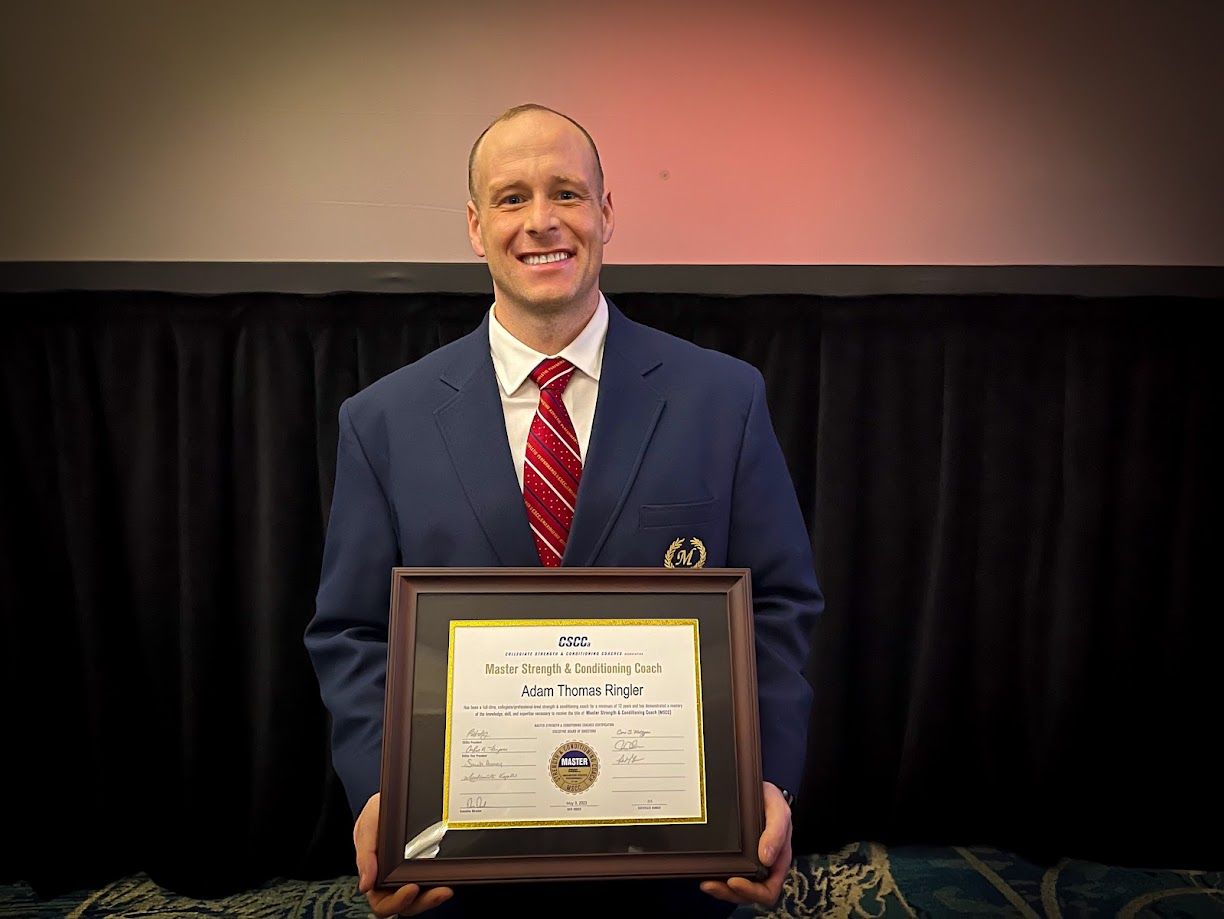10 Hard Truths About Coaching in the World of Athletics

As I recently had the opportunity to interact with several aspiring intern strength and conditioning coaches, it became evident that many of them harbored idealistic perceptions of the collegiate coaching profession. They envisioned a world filled with victory celebrations, accolades, and an undying passion for the coaching industry. However, the realities of coaching are far more complex and nuanced.
Coaching (by large) is a multifaceted field that goes beyond the glitz and glamour.
It's a profession that demands hard work, dedication, and the ability to navigate the challenging aspects of shaping athletes. In this article, I delve deeper into the hard truths about strength and conditioning coaching, using examples from my nearly two decades to shed light on the intricate nature of this profession.
1. Education Sets the Foundation, Not the Destination

Coaching education is akin to learning the basics of swimming. You can study theory, understand the different strokes, and even take swimming competency exams. However, true swimming skills are developed when you plunge into the water.
In coaching, formal education programs lay the groundwork, but they fall short of preparing coaches for the intricacies of the profession. For instance, you might learn coaching principles and strategies from a NSCA textbook, but you won't truly grasp the essence of coaching until you step onto the weight room floor.
To illustrate, consider a young coach fresh out of college. They may have a solid theoretical foundation, but when faced with real athletes, the dynamics are completely different. The playbook rarely unfolds as expected, and the coach must adapt on the fly, dealing with diverse personalities, skill levels, and unexpected challenges. The transition from theory to practice can be as daunting as jumping into the deep end of a pool after years of studying swimming from the edge of the pool.
2. Teams Often Come with Their Own Histories
Novice coaches might envision starting their coaching journey with a clean slate, shaping a team from scratch. However, the reality is that you're more likely to inherit an established team with its own history, culture, and dynamics.
Think of this scenario as taking the helm of a battleship already mid-voyage. You need to learn about the crew, adapt to their existing routines, and find your place as the captain. It's not a blank canvas; it's a complex, evolving masterpiece that requires your unique brush strokes.
3. Acknowledgment for Good Work Is Not Always Guaranteed
While your coaching peers may appreciate your technical/tactical coaching prowess, don't expect constant praise or recognition from the outside world. Often, the most valuable contributions go unnoticed by the public eye.
For instance, consider the case of a strength and conditioning coach who excels in designing effective training programs that lead to athlete improvements. While this might be evident to the athletes and their immediate circles, it doesn't necessarily translate into public accolades or media attention. Coaches often labor behind the scenes, crafting strategies that propel their teams to victory without fanfare.
This reality can be disheartening for new coaches who expect instant validation for their hard work. However, experienced coaches understand that their primary objective is to foster athlete growth, even if their efforts remain largely uncelebrated.
4. Working with Diverse Personalities Is a Given
Just as in the world of software development, where you collaborate with a spectrum of personalities, coaching requires managing athletes with varying temperaments and abilities.
It's a jigsaw puzzle of unique characters that coaches must piece together for a cohesive team.
For example, think of a sports team as a project team, with each athlete representing a team member. Just as in technology development, you'll encounter individuals with different skill sets, attitudes, and work ethics. Some might need more guidance and support, while others may excel with minimal supervision.
It's crucial for coaches to recognize these distinctions and tailor their coaching methods to suit each athlete's needs. Just as a skilled developer knows how to adapt their coding style to collaborate effectively with team members, strength and conditioning coaches must adjust their strategies to unlock the potential in every athlete.
5. Meetings Are a Necessary Evil

In the coaching world, just as in any profession, meetings are an unfortunate staple. While some meetings are essential for sharing critical information and aligning team goals, others may feel like time-wasting formalities.
Consider this scenario: You're a coach conducting a team meeting. Just like a business team's daily stand-up, the aim is to keep everyone informed and coordinated. However, not all meetings serve a productive purpose. Some can become repetitive and unnecessary.
As a coach, you must strike a balance between conducting productive meetings that facilitate communication and avoiding meetings that merely add to the bureaucracy. It's a challenge that requires adept organizational skills and a discerning approach to meetings.
6. Return to Play Timelines Are a Balancing Act
Coaches, like data engineers, often find themselves in the predicament of estimating the time required for athlete development. These estimations are akin to setting deadlines for development projects, but they come with a unique set of challenges.
For instance, imagine you're preparing an athlete returning from reconstructive ACL surgery. You need to predict how long it will take for them to reach peak performance. Just like a data engineer providing time estimates for a project, you must consider various factors, such as the athletes' current capabilities, potential setbacks, and unforeseen challenges.
However, the dynamic nature of sports makes accurate estimations challenging. Athletes might face setbacks/injuries, performance plateaus, or unexpected obstacles along their journey.
Coaches must learn to under-promise and over-deliver, just as a seasoned developer knows the importance of setting realistic project deadlines.
7. Embracing Errors and Setbacks

In both coaching and data science development, errors are an inherent part of the process. Just as a engineer anticipates bugs/errors in their code, a coach must prepare for athlete setbacks and challenges. I have a boneyard of abandoned R & Python code.
For example, consider a strength and conditioning coach working with a young athlete. Despite meticulous training plans, the athlete might encounter unexpected performance drops or injuries. These are akin to coding bugs that emerge despite rigorous testing.
A successful coach recognizes that errors and setbacks are inevitable. They view these experiences as opportunities for growth and learning, just as data engineers treat bugs as chances to improve their code. Instead of dwelling on errors, strength and conditioning coaches focus on solutions and adapt their strategies to ensure the athletes' progress continues.
8. Navigating Uncertainty
Uncertainty is a constant companion in strength and conditioning coaching, much like in data development. Coaches must make decisions without complete information, just as data engineers must navigate complex projects with evolving requirements.
Consider you're preparing a basketball team for a competition, and you must estimate the chances of success with a particular line-up. While you might have data and experience to inform your decision, there are variables beyond your control, such as readiness conditions of your squad and/or the opponents' strategies. Coaches (including front-office and GMs) often find themselves in situations where they must embrace uncertainty and adapt to changing circumstances.
9. Achieving Work-Life Balance in a 24/7 World

Coaching often blurs the lines between work and personal life, much like the demanding nature of business development. Strength and Conditioning Coaches may find it challenging to disconnect from their work, especially when they're deeply invested in their athletes' success. We all too familiarly know the extreme highs of winning a close game and lowly-lows of arriving home after a defeat.
For instance, a coach might spend evenings reviewing workload data or planning training sessions, even when they should be relaxing. This can lead to tension in personal relationships and a sense of always being on the clock.
Coaches must develop strategies to maintain a healthy work-life balance, just as any business executive must learn to disconnect from their screens. This might include setting boundaries for work hours, engaging in activities that help them unwind, and practicing mindfulness to stay present in personal moments.
10. Soft Skills Are Your Secret Weapon
Technical skills are essential, but in both coaching and business, soft skills play a crucial role in achieving success. Just as a business leaders benefits from effective communication and teamwork, coaches rely on their soft skills to build strong relationships with athletes and colleagues.
Consider the case of a coach who excels in communication. This coach can effectively convey strategies, motivate athletes, and create a positive team environment.
Their ability to connect with athletes on a personal level enhances the coaching experience and fosters trust.
In coaching, as in life, success hinges on a combination of technical proficiency and soft skills. Coaches who prioritize emotional intelligence, teamwork, and approachability often find themselves better equipped to navigate the intricacies of the profession.
Wrapping Everything Up
Lets finish this article.
Coaching in the world of athletics is a profession that demands a holistic understanding of the game. It's not just about the wins and losses; it's about nurturing athletes, managing diverse personalities, and navigating the ever-changing landscape of sports.
By acknowledging and embracing these hard truths, coaches can become more resilient and effective in their roles. Just as business executives continually adapt to new challenges and embrace change, coaches must navigate the dynamic world of athletics with unwavering dedication and a commitment to constant improvement.
